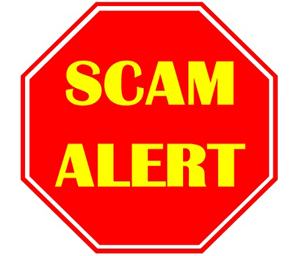
INDIANA -The bad guys try really hard to get your money. The IRS says complaints have come in from all over the state and the criminal investigations division wants you to take steps to protect your stimulus check.
It’s actually pretty easy, if you understand what might be a scam, says Kathy Enstrom, IRS Special Agent in Charge for the region that includes Indiana.
“Remember, the IRS will not e-mail you, text you or contact you on social media asking for personal or banking information related to the Economic Impact payment,” said Enstom, in a Tuesday news conference, along with U.S. Atty. for the Northern Dist. of Indiana, Thomas Kirsch.
“These phishing schemes can ask taxpayers about their refunds or filing status and they could attempt to confirm personal information.”
Enstrom said that phishing e-mails, if you click the link, can lead you to sites that ask for social security and personal information, which could later be used by the crooks to file a return in your behalf, which can lead to theft of the stimulus check.
She said another scam involves someone asking for you to verify your bank or PayPal account info to receive the payment. Ensrtom said the IRS already has that info from your previous return, or you’ll get a paper check in the mail. But, crooks are also set up to try and get your paper check.
Fradulent checks may also be sent out.
“If you receive a check in the mail now, be careful.” She said there are no paper checks going out yet.
“If you a see a check that contains dollars and cents, like an odd amount and they ask you to verify the check or call a phone number or click a link online, that is probably a fraud,” said Enstrom.
She said other scammers may try to get your info saying they will be able to speed up your payment. That’s also not true.
“There is no way to speed up the IRS payment process unfortunately.”


